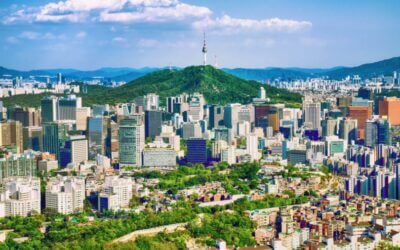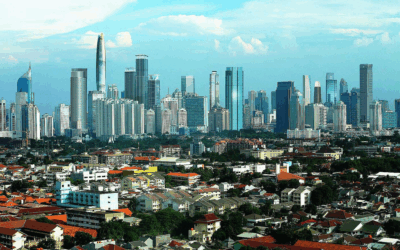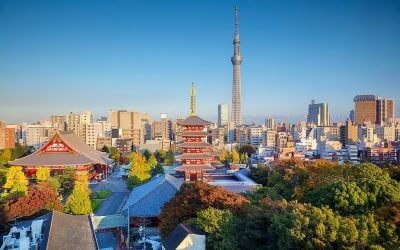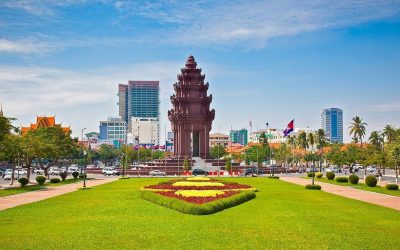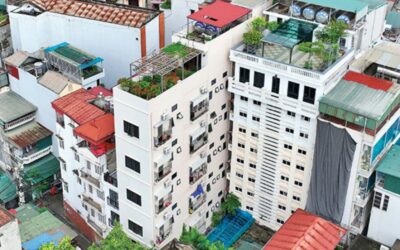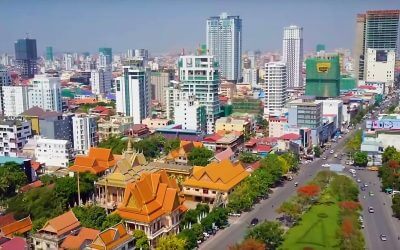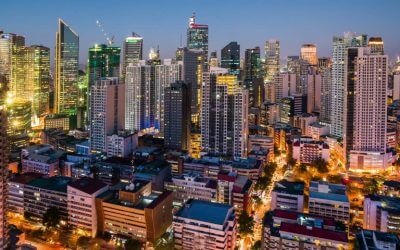Asia isn’t the easiest continent to own property if you’re a foreign investor. It’s arguably the world’s most profitable though.
The region’s biggest economies get a lot of attention. But when we suggest buying real estate in Asia, we don’t just mean places like Japan, where a weak economy is amplified by population decline. Or China which is closed to foreign freehold property ownership.
Asia is a massive continent with dozens of investment options. It’s home to a majority of the world’s population (with 4.5 billion inhabitants and rising), and spans 9,000km from Istanbul to Tokyo.
In particular, we suggest Asia’s frontier and emerging real estate markets because of their superior growth prospects.
Real estate in Asian countries like the Philippines, Cambodia, and Malaysia benefit from high rental yields. Their economy is driven by natural, demographically-driven factors such as their population growth and rising urbanization rate.
Why is frontier market property in Asia worth investing in? The main reason is because of its lack of correlation with the overall global economy.
In countries like Vietnam, with its population of 103 million and rising, long-term real estate demand will inevitably rise simply due to the nation’s demographic reality.
Each year, several million Vietnamese people move from rural areas into rapidly growing megacities such as Hanoi and Ho Chi Minh City. A greater number of inhabitants in a city equals increased demand for property.
That’s especially true when a country’s middle class is simultaneously rising in prominence, as a newly-prominent consumer class gains the ability to afford a home.
In our “Vietnam example”, the nation’s consumer class is helped by its average age of 25, high education standards, continued relocation of international companies away from China, and multiple other factors working together in tandem.
And this trend isn’t just playing out Vietnam either – it’s happening all across emerging Asia. Indonesia, Cambodia, the Philippines, and dozens of other nations all have similar factors driving their real estate markets.
Predicting if any country’s property values will appreciate is difficult. With that said, we take positive demographic trends very seriously since they naturally drive demand and rarely change once set in motion.
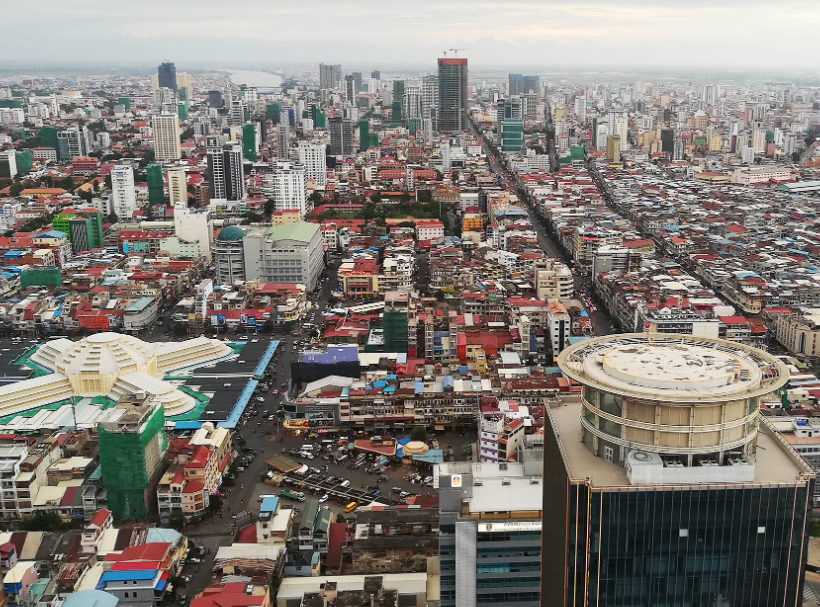
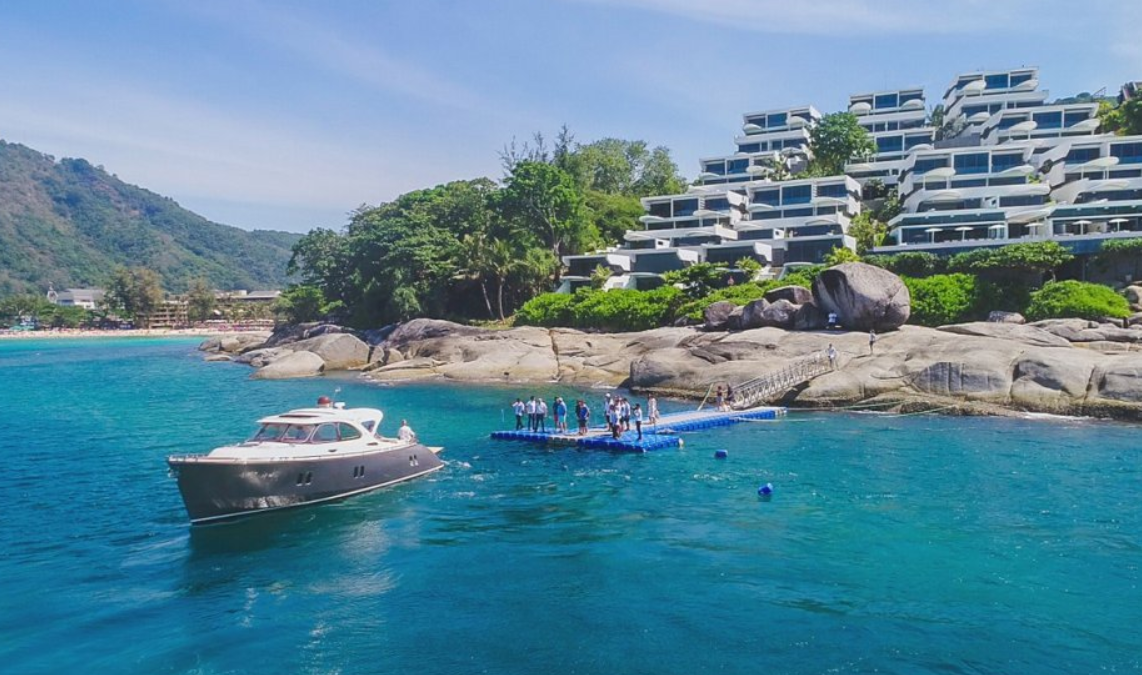
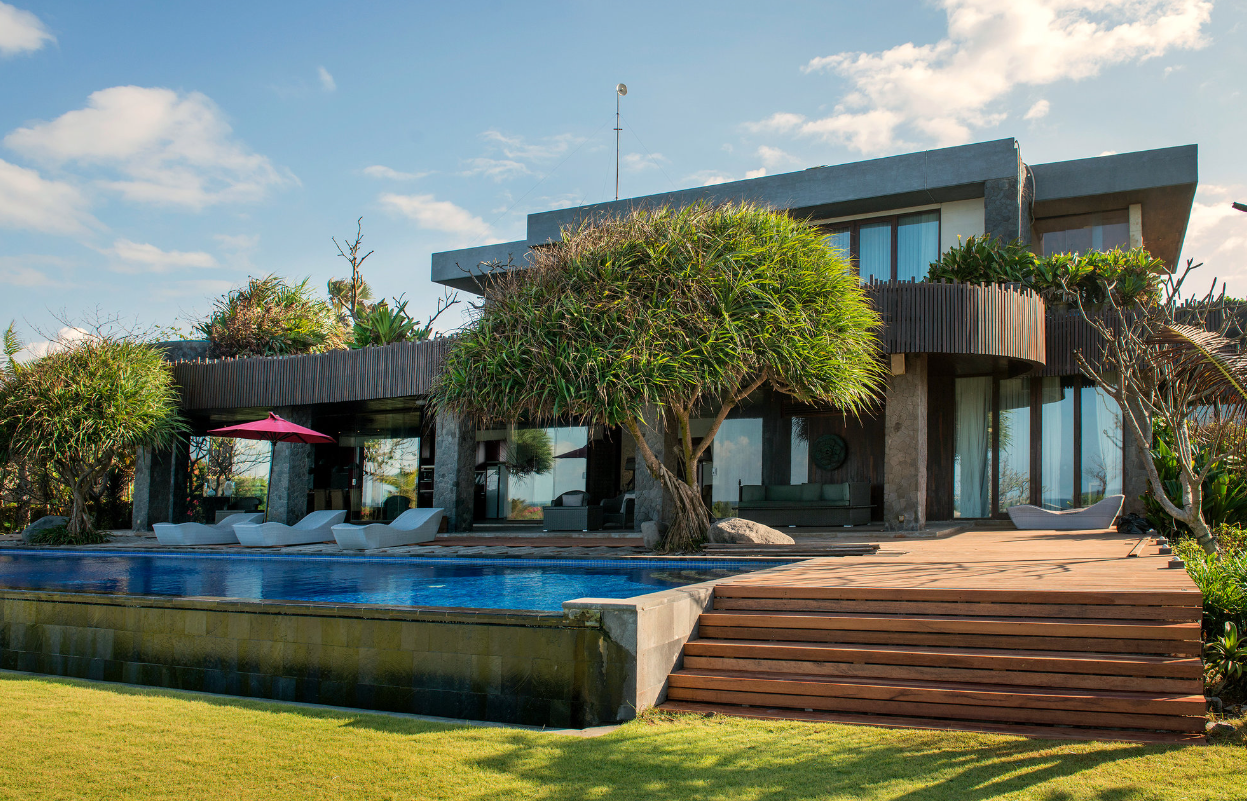
WHERE CAN FOREIGNERS OWN PROPERTY IN ASIA?
Not all real estate markets in Asia are on equal terms when it comes to foreign ownership rights. Nor are they fully open to foreign ownership. If you chose any two places on the continent at random, there will almost certainly be vast differences between each of their property laws.
While lots of opportunity exists across Asian property markets, you’ll often face limits on what types of real estate you’re able to own as a foreign investor. Land ownership rights vary depending on the specific country.
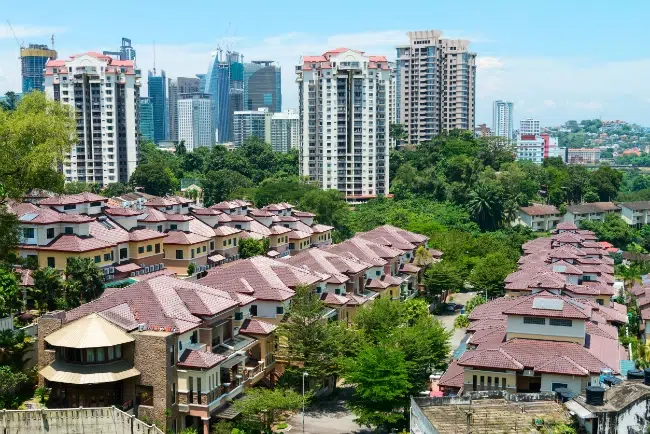
Malaysia is one of few countries in Asia where foreigners can own landed houses on a freehold basis. You can also get a long-term visa through their MM2H program. Remember: in many countries, owning property doesn’t automatically give you the right to stay there permanently.
A few countries don’t have any restrictions on foreign property buyers whatsoever. Several of these real estate markets include South Korea, Japan, and Malaysia.
You can own freehold property as a foreigner outright in these places. Even land ownership, luxury homes, and commercial real estate aren’t off-limits to foreign nationals.
In other real estate markets, you aren’t allowed to own land or houses as a foreign investor – yet can still buy condo units on a freehold basis.
Countries that restrict foreign land ownership, although still allow condo ownership, include Thailand, the Philippines, and Singapore.
FREEHOLD VS. LEASEHOLD OWNERSHIP
Several countries in Asia won’t let foreigners, or sometimes even their citizens, own freehold property at all. This is usually because of one of two different reasons.
First, it might only be possible for locals to own freehold property. Countries like these include India, Brunei, Myanmar, and Indonesia. They’ll let citizens buy land and condos outright, but you’re out of luck as a foreigner. This is, unless you’re willing to settle for a long-term lease.
Yet these types of leasehold agreements are never ideal from an investment perspective. It’s always better to own property outright with a freehold title.
Second, land is only owned by the state in some countries. For instance, China and Vietnam won’t allow anyone (even local citizens, let alone foreign investors) to own freehold property. Every plot of land is instead leased from the state, typically for a period between 50 and 99 years.
In either of those cases, your sole option as a foreign property investor is to rent or lease the building on a long-term basis.
We don’t think leaseholds are a good idea and strongly advise against them. The main reason is because they’re a depreciating asset. A leasehold is always on a clock, ticking closer to zero.
Imagine trying to resell a 99-year leasehold with only 10 years left on the term!
Asia is home to plenty of nations that allow freehold real estate, and there’s no reason to invest in a country which limits you to leaseholds when it’s not necessary.
WHAT’S THE BEST COUNTRY TO BUY PROPERTY?
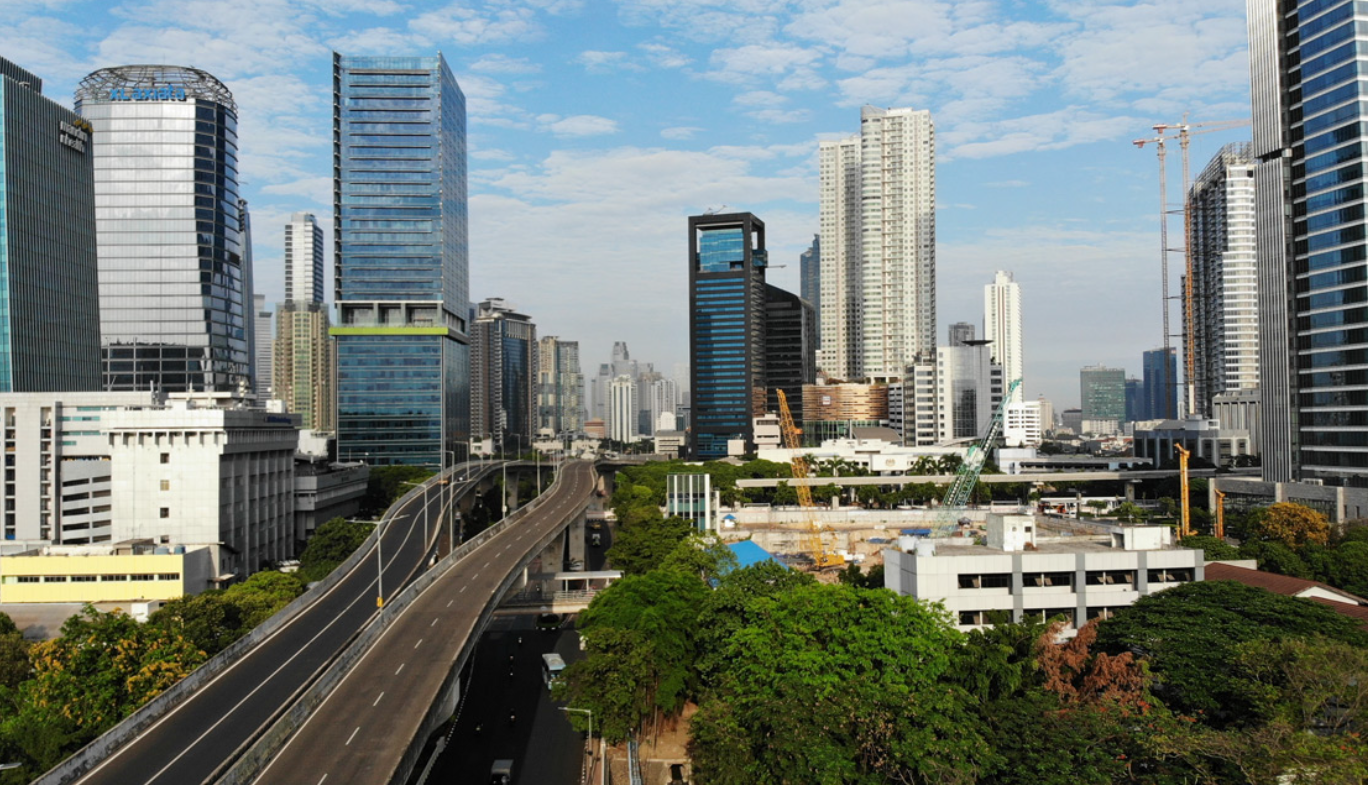
Rarely does a “one-size-fits-all solution” ever exist, and international real estate isn’t an exception. The specific details of your ideal property will depend on your own circumstances.
If you’re retiring in Asia or looking to own a second home, then you’re the only one qualified to make that choice. A lifestyle purchase is about where you prefer spending time.
As investors though, we’re primarily concerned with profit and overall returns. Not whether we’d personally enjoy living in the asset that we’re aquiring.
It’s worth noting that a clear majority of long-term investors prefer buying real estate in capital cities or financial hubs instead of resort towns or rural areas.
This strong preference for urban areas is caused by multiple factors.
First off, urban areas are where most of any nation’s economic activity, corporate offices, highly paid jobs, and, educational opportunities are focused. Large cities simply have greater housing demand because of their connectivity and available opportunities.
Secondly, large cities are the main beneficiaries of Asia’s positive demographic trends. Frontier markets will especially see their urbanization rates climb, almost inevitably driving up demand for condos and houses in central locations.
You might be asking: what is urbanization rate, and why does it matter when making an offshore real estate investment?
Basically, it’s the percent of any country’s population that currently lives in urban areas. The urbanization rate typically peaks in developed nations, and is low (yet rising!) in emerging and frontier market economies.
In Japan and South Korea, for example, their urbanization rates are 91.7% and 81.5% respectively. That’s indicative of a country filled with office workers who have money to spend.
Emerging markets such as Thailand (50.7%) and the Philippines (47.45%) are about halfway along the economic development scale, and are rising. Meanwhile, in Vietnam, it’s 37.1%. In Cambodia its even lower at 24.2%.
Places like these are often the best real estate markets to invest in Asia. All indicators show that places like the Philippines and Cambodia will benefit from greater demand as their population moves from rural areas into the cities.
A final point: recent events have proven that tourist towns and beach resorts aren’t anywhere near as resilient as major cities during times of crisis.
In conclusion, the best places to buy property in Asia are in high-growth urban areas which are currently going through a population boom. Think about cities such as Manila, Phnom Penh, and Jakarta.
Skip the Next Western Recession
Learn the best places to invest – and where to avoid – by downloading our free Investment Cheat Sheet.
STRATEGY #1: PROPERTY FUNDS AND REITS
If you’re a hands-off-investor (a majority of UHNWIs especially are), then buying shares of a managed property funds or REIT is one of your best options.
While real estate investment funds do take a management fee, they can also potentially make higher returns. Their ability to operate on scale adds value, often making it worth the cost of a few percentage points.
Real estate funds can purchase larger commercial properties and office buildings. Generally, these types of buildings generate higher rental yields than residential units.
REITs also take care of the management, rental, and maintenance of the portfolio. Bulk purchases lead to further cost savings on any furniture, appliances, and construction projects. These relationship-based discounts are passed onto shareholders.
Having local connections makes it easier to rent your property and keep it tenanted. After all, agents have a choice of which homes to show first. Many realtors give priority to institutional clients since they’re more likely to be repeat customers.
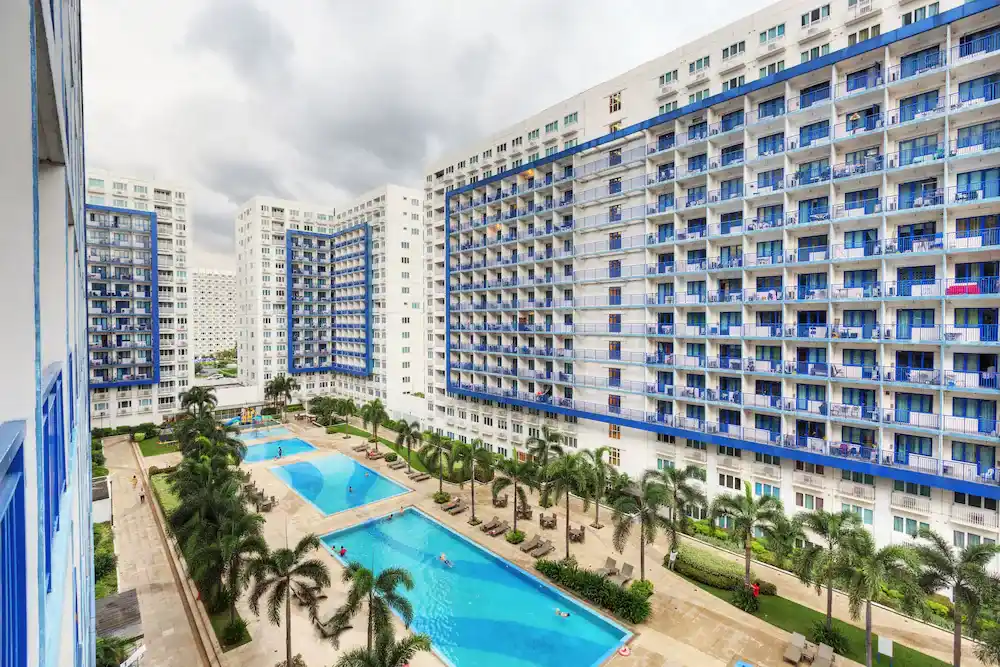
STRATEGY #2: BUY, RENT, AND MANAGE
The choice that many property investors will make, in particular those who are already living in Asia, is to buy a property and manage it themselves.
If you’re buying property listed on the secondary market, then your first stop will probably be a real estate agent. That’s especially true when purchasing in a developed market like Singapore or Japan.
Meanwhile, if you’re buying a newly-built home or condo, your first stop will be the property developer itself. They’ll walk you through the transfer process.
You may also want to hire a lawyer depending on the developer’s reputation, your familiarity with the market, and the specific place you’re buying real estate in.
Dealing with a developer directly is suitable in an environment with large, reputable real estate companies like the ones in Thailand or Malaysia.
We don’t suggest “going at it alone” in a country like the Philippines or Vietnam though. If you’re doing business in frontier markets, and haven’t already done so before, then you’ll probably want advice.
Great deals can be found by word-of-mouth as well, and in some countries, most listings are private. They aren’t announced and made public through realtors or online listings. However, you may not have access to the local connections required to find these deals as a foreign real estate buyer.
It’s also worth keeping in mind that, depending on the country and its laws, you might not have the ability to own all types of property as a foreigner.
Thailand, for instance, only allows local citizens to own landed properties. But you can still buy shares in a REIT or property fund listed in Thailand. Such real estate funds are focused on commercial real estate or hotels.
Meanwhile, over in India and Indonesia, only locals have the ability to own real estate directly. As a foreigner, the only way to invest in freehold property in both of these countries is through a REIT or fund.
The CapitaLand India Trust, domiciled in Singapore, is one specific REIT that invests in India’s commercial property market. And unless you’re a local citizen, it’s the only way to invest in India’s real estate market.
Also, keep in mind that if you aren’t actually living in the country where you own property, then you’ll need to hire a property manager.
Dealing with maintenance, managing repairs, and finding tenants is incredibly difficult if you’re based on the other side of the world. And failing to accomplish any of those three things will result in unhappy tenants… or perhaps having none at all.
Real estate companies in Asia can help with the logistics of leasing your property. As a standard, property managers charge about 10% of rental income – a similar amount to an investment fund or REIT.
STRATEGY #3: VACATION HOME COMBO
We mentioned above that some readers might be seeking a lifestyle asset more than an investment.
Based on our experience consulting with clients, we find that people often considering doing both things at the same time with a single purchase.
The idea of “buying a summer house that can also be rented out” will pop up occasionally. But it’s very difficult to accomplish both goals at once. We don’t suggest mixing your investments with a lifestyle purchase or a second home.
Why should you separate your investments from your homes? Because the factors that make a good investment aren’t the same ones that make an ideal living situation for you personally. And vice versa.
For example, in Thailand, two-bedroom condos between the size of 80sqm and 120sqm yield the highest and are currently easiest to rent out. What if you only require one bedroom though? Or have a large family which needs three or four?
Items which you might personally enjoy, such as decorations, kitchen upgrades, hot tubs, and built-in stereo systems, typically won’t add any ROI. Worse yet, a tenant might break your expensive upgrades and cause damage to fixtures.
Landlords will realize these problems aren’t fun to deal with at all. Especially if we’re talking about a condo or house that you plan on staying in as a vacation home for part of the year!
Plus, the optimal place to invest in real estate probably isn’t where you happen to enjoy spending your personal time. For example, if cities are the optimal investment, but you enjoy beaches, then you’d have to make two different purchases in order to achieve both goals.
The main takeaway here is: it’s best to spend time in places where you enjoy living, and buy real estate in Asian countries where you’ll make a profit.
Real Estate in Asia: FAQs
Which Countries Can You Buy Land in Asia as a Foreigner?
Japan, Malaysia, and South Korea each allow foreigners to own land on a freehold basis, under their own name.
However, most real estate markets in Asia restrict foreign property ownership. Generally, countries either don't allow it at all or only permit foreigners to buy condos.
What is the Most Expensive Place to Buy Property in Asia?
Singapore is one of the most expensive real estate markets in not only Asia, but the entire world. You'll pay about US$20,000 per square meter for real estate in Singapore's central districts.
Where are the Highest Rental Yields in Asia?
Jakarta, Indonesia and Phnom Penh, Cambodia are two cities in Asia with the highest rental yields.
Property owners are able to common achieve net rental yields of between 6% to 8% in both of these real estate markets.
Skip the Next Western Recession
Learn the best places to invest – and where to avoid – by downloading our free Investment Cheat Sheet.
READ MORE ABOUT REAL ESTATE IN ASIA
Top 8 Korea Property Developers: A Complete Guide
Last updated April 27th, 2025. South Korea escaped the middle-income trap to join Singapore and Japan as Asia's third wealthiest country. Because of this, property developers in Korea benefit from relatively new demand for housing. Few other countries in the world...
Top 10 Indonesia Property Developers: Complete Guide
Last updated April 2nd, 2025. Ranked as the fourth largest country in the world in terms of population size, Indonesia's real estate developers are naturally among the fastest growing companies in Southeast Asia. If history is any guide for what happens in such...
Top 10 Japan Property Developers: A Complete Guide
Last updated March 13th, 2025. In many aspects, Japan is unique in its history and culture. Investors will find that Japanese property developers are also unique in their finances and approach to real estate. If you come from the Western world, you're likely not...
Best Countries to Invest in 2021
Update for January, 2023: We’ve finally entered a new decade as 2023 begins. Here’s our updated article with the top countries to invest in 2023. 2020 was a particularly interesting time where many investing myths were tested. A year ago, we were talking about...
Resort Property Investments Are a Big Mistake
Last updated January 26th, 2024. On the surface, buying real estate that caters to tourists seems like a fantastic idea. Not only are the locations and buildings beautiful but the tourists often have a higher disposable income than the locals. And with that thought...
Top 10 China Property Developers: A Complete Guide
Last updated March 12th, 2025. China is Asia’s quintessential success story. Since the 1980s, the country has transformed into an economic powerhouse. And Chinese property developers have certainly helped fuel nation's rapid change. The Chinese construction boom has...
Why You Shouldn’t Buy Vietnam Real Estate
Last updated February 4th, 2025. Imagine this: you buy a beautiful house in Vietnam, where you plan to spend the rest of your life with your loved ones. But a few decades later, somebody comes up to your property and says that the time's up: your dream house is no...
Buying a Condo in Phnom Penh: The Ultimate Guide
Last updated May 6th, 2024. Condos in Cambodia tend to fly under the radar when it comes to foreign real estate investment in Asia. Many who aren't familiar with Cambodia, or its property market, tend to think of it as a war-torn nation that lags behind its neighbors...
Top 10 Philippine Property Developers: Complete Guide
Last updated February 21st, 2025. Buying from real estate developers in the Philippines is more popular than ever. The nation's economy keeps growing alongside its population of educated, English-speaking professionals. Indeed, the Philippines' demographics are among...
READY TO INVEST IN THE WORLD’S FASTEST GROWING COUNTRIES?
Join 50,000+ monthly readers. Discover property, stocks, and other investments that will drive global growth in the 21st century.

